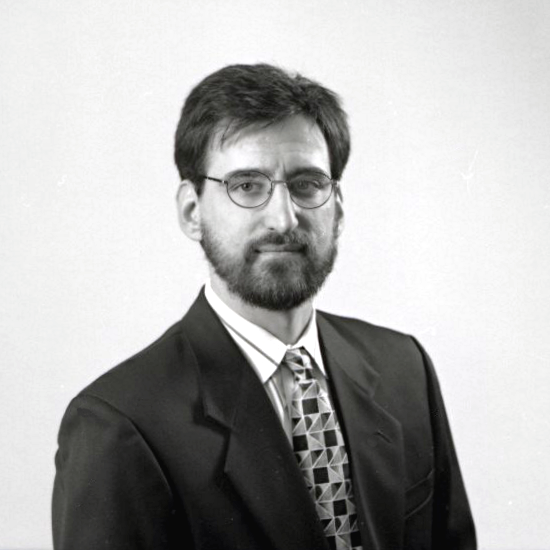Faculty 2014
Our lecturers are hand-picked for their in-depth expertise and ability to convey
their experiences to maximise the learning experience of our delegates. They also
are friendly, approachable, and able to have a good laugh! The intensive, yet
informal, atmosphere at the XML Summer School gives delegates the opportunity to
pick the brains of our expert faculty, both during the classes and afterwards over
a
meal or in the bar.
The Faculty Board operates under the stewardship of Course Director, Dr Lauren Wood.
Each year it decides on the appropriate courses and curriculum and invites the
fantastic array of experts to prepare and deliver classes.
Adam Retter | Dr. Andy Seaborne | Debbie Lapeyre | Dr. Elie Abi-Lahoud | Eve Maler | Florent Georges | Gary Cornelius | Helen Porter | Jacqui Maher | Jo Rabin | Professor John Chelsom | Kal Ahmed | Dr. Kevin Page | Dr. Lauren Wood | Matt Patterson | Dr. Michael Kay | Mohamed Zergaoui | Norm Walsh | Dr Norman Gray | Peter Flynn | Philip Fennell | Priscilla Walmsley | Tomos Hillman | Tony Graham
Faculty Board Members
- Debbie Lapeyre
-

Ms. Lapeyre has been working with XML, XSLT, and XPath since their inception and
with SGML (XML’s predecessor) since 1984. Debbie is an architect and developer
of XML Tag Sets (vocabularies) who designs and writes the schemas (DTD, XSD,
RELAX NG) that model those vocabularies. Most recently, she serves as the
architect and as a member of the design team for the NLM Journal Archiving and
Interchange Tag Suite, now the de facto standard for tagging journal articles
worldwide. As a document-oriented publishing analyst, Debbie helps clients to
analyze their information management, retrieval, and distribution/publication
requirements and translates these requirements into functioning production
systems, based on XML technologies. As a senior XSLT and XSL-FO consultant for
Mulberry Technologies, Inc., she
designs both pages and specifications for complex XSLT transforms and
stylesheets as well as develops prototype XSLT applications. Debbie is a member
of the XML Guild. She is also a co-chair of “Balisage: The Markup Conference” and has previously co-chaired
“Extreme Markup Languages”, “Markup Technologies”, and the annual international
“SGML/XML’XX Conference”. She teaches XML, XSLT, XSL-FO, Schematron,
What-is-XML-and-Why-Should-You-Care, and XML print workflows at venues all over
the English-speaking world.Debbie teaches in the Hands-On Introduction to XML course.
- Helen Porter
-

Helen Porter is the XML Summer School Coordinator. She takes care of all the
administration for the Summer School, including liaising with the college and
responding to registration queries. - Professor John Chelsom
-

John is the XML Summer School Symposiarch. He founded the Summer School with
colleagues from CSW in 2000 and has taught every year since.John chairs the Hands-On Introduction to XML course and the XML Primer course and teaches in the Hands-On Introduction to XML course and the XML Primer course.
- Dr. Lauren Wood
-

Lauren Wood is an independent consultant, with a focus on standards-based
healthcare, XML publishing, and the web. Her wide-ranging experience includes
roles as product/program manager, technical analyst, facilitator, and quality
checker, depending on the needs of the project.Most recently she was Senior Product Manager for Design Science, Inc,
concentrating on the MathFlow suite of mathematical typesetting and rendering
products. Before that, she was a consultant in healthcare standards with the
Lantana Consulting Group. While with Sun Microsystems she was program manager
for an innovative cloud+mobile project that had many of the features of today’s
smartphone systems, as well as representing Sun in the Liberty Alliance, and
working on other identity and privacy-focussed projects. As Director of Product
Technology for SoftQuad, she had significant input into SoftQuad’s XMetaL XML
editor. She chaired the US XML Conference from 2001 to 2005, chaired the W3C DOM
Working Group from its inception to the end of Level 2, and played an active
role in many other OASIS and W3C technical committees.Lauren has been a Faculty member of the Summer School since the beginning. She
occasionally blogs on issues
technical and otherwise.Lauren chairs the Hands-on Web Publishing course and the Trends and Transients course and teaches in the Hands-on Web Publishing course.
- Norm Walsh
-

Norman (Norm) Walsh is a Lead Engineer at MarkLogic Corporation where he works
with the Application Services team. Norm is also an active participant in a
number of standards efforts worldwide: he is chair of the XML Processing Model
Working Group at the W3C where he is also co-chair of the XML Core Working
Group. At OASIS, he is chair of the DocBook Technical Committee. With almost
twenty years of industry experience, Norm is well known for his work on DocBook
and a wide range of open source projects. He is the author of DocBook: The Definitive Guide.Norm chairs the Publishing With XML course and teaches in the Hands-on Web Publishing course and the Publishing With XML course.
- Peter Flynn
-

Peter Flynn has over 30 years experience in IT and information management. He
currently manages the electronic publishing unit at University College Cork, and
also has his own text management consultancy, Silmaril Consultants, where he works mainly with industrial production
and research systems.Peter was a member of the W3C’s XML Special Interest Group and a member of the
IETF’s Working Group on HTML. He is maintainer of the XML FAQ and author of The World-Wide Web
Handbook (ITCP, 1995) and Understanding SGML and XML Tools (Kluwer, 1998). He
has recently been researching the usability of editors for structured documents.In what’s left of his time he likes to cook, surf, read, and listen to early
music.Peter chairs the Linked Data course and teaches in the Hands-on Web Publishing course.
- Priscilla Walmsley
-

Priscilla Walmsley is a senior consultant and managing director at Datypic,
specializing in XML architecture and implementation. She is an expert in XML
core technologies (XQuery, XSLT, XML Schema), content management and
service-oriented architectures.Priscilla was a member of the W3C XML Schema Working Group from 1999 to 2004,
where she served as an Invited Expert. She is the author of Definitive XML Schema
(Prentice Hall PTR, 2001), and XQuery (O’Reilly Media, 2007). In addition, she co-authored Web Service Contract
Design and Versioning for SOA (Prentice Hall 2008).Priscilla chairs the XSLT and XQuery course and teaches in the XSLT and XQuery course.
Faculty Members
- Adam Retter
-

Adam Retter is both an independent consultant and a co-founder of eXist Solutions GmbH. Adam has been
working with XML technologies and contributing to eXist since 2005. He has almost 15 years
of experience in building Web Applications and Distributed Application
Architectures. Adam has worked with many different technologies and programming
languages in the past, but has been particularly enjoying XQuery and Scala over
the last few years. Adam is passionate about Open Source and Open Standards. As
such he is an invited expert on the W3C XQuery Working Group and sits on the
peer-review panels of the XML Prague, Balisage, and XML London conferences. Adam also
founded the EXQuery project in early 2009,
and has since been working with the XML community and as part of the EXPath project to standardise and improve
XML application development with XQuery, XSLT and XPath.Adam’s homepage is at http://www.adamretter.org.uk
Adam teaches in the Hands-On Introduction to XML course and the XSLT and XQuery course.
- Dr. Andy Seaborne
-

Andy has been working on the storage and query of RDF data, first as a researcher
at HPLabs, and now at Epimorphics. Andy is
continuing his participation in the SPARQL standardization process. He started
as a member of the W3C RDF Data Access Working Group and is a member of the
current W3C SPARQL Working Group. Andy co-edits the query language specification
and lead the proposal submission for SPARQL Update and is a member of the W3C
RDF Working Group.He also works on Apache Jena, an open source RDF framework for Java, where he
contributed the query engine, ensuring that complete implementations of the
standards are available, and several persistent storage sub-systems.Andy has a PhD in Computer Science from the Computer Laboratory at the University
of Cambridge.Andy teaches in the Linked Data course.
- Dr. Elie Abi-Lahoud
-

Elie Abi-Lahoud, PhD, has been working on innovative technologies for enterprise
solutions for the past 12 years. Since 2012, he is leading a multinational –
multidisciplinary research team that is engaged in applying semantic
technologies to Governance Risk and Compliance in financial services at the
Irish GRC Technology Centre hosted by University College Cork, Ireland. Elie
works closely with the Object Management Group (OMG), the Enterprise Data
Management Council (EDMC) and thought leaders in the financial industry on a
common vocabulary capturing shared domain-understanding, on a deeper
understanding of regulations, and on improving regulation-aware decision-making.
He advocates for business-centric software solutions.Elie teaches in the Linked Data course.
- Eve Maler
-

Eve Maler is the VP Innovation & Emerging Technology at ForgeRock. She is a renowned strategist,
innovator, and communicator on digital identity, access, security, and privacy,
with particular focus on creating successful wide-scale ecosystems and fostering
individual empowerment. Eve drives innovation for the ForgeRock Open Identity
Stack, defining strategic product direction and ForgeRock involvement in
industry standards related to access control, authorization, and privacy. She
also founded and leads the User-Managed Access (UMA) standards effort.Eve was formerly a principal analyst at Forrester Research, advising clients on
emerging identity and security solutions, consumer-facing identity, distributed
authorization, privacy enhancement, and API security. Previously, Eve was an
identity solutions architect with PayPal, and earlier, a technology director at
Sun Microsystems, where she co-founded and made major contributions to the SAML
federated identity standard. In a previous life she co-invented XML.Eve teaches in the Trends and Transients course.
- Florent Georges
-

Florent Georges is the founder and CTO of H2O Consulting. He has been involved in
the XML world for 10 years, especially within the XSLT and XQuery communities.
He is an invited expert in the XSL working group at W3C. His main interests are
in the field of XSLT and XQuery extensions and libraries, packaging, unit and
functional testing, and portability between several processors. Since the
beginning of 2009, he has worked on EXPath, to define “standard” extension
function libraries that can be used in XPath (so in XSLT, XQuery and XProc as
well). Florent’s website is at http://h2oconsulting.be/. Florent is currently working for MarkLogic as
a Solution Specialist.Florent teaches in the XSLT and XQuery course.
- Gary Cornelius
-

Gary Cornelius is an experienced XML consultant and information architect. Gary
has been an active contributor to XML mailing lists and standards for over a
decade and enjoys technical project management involving XML. He studied
publishing, graphic communication management, and digital imaging.Gary was involved with the engineering of many new XML based technology
innovations and products over the years such as XML base databases, CMS systems,
Electronic Health Records Systems, application performance managements systems,
various multimodal user interface systems and several knowledge management and
decision support systems. He has developed several XML and web related training
courses for IT engineers and managers.In 2002 Gary was a delegate attending the XML Summer School and for the following
10 years he returned as a speaker and instructor.Gary is a Senior DevOps Engineer working at Formedix in Scotland.
Gary teaches in the Hands-On Introduction to XML course.
- Jacqui Maher
-

Jacqui is a research engineer with the New York Times’ R&D Labs where she
helps build prototypes that illustrate the impact of emerging technologies on
news, media and information in the coming years. Prior to that, she worked on
the Interactive News desk, a group of programmer/journalists using technology to
enhance storytelling in the newsroom. She got her start in the hacker community
in NYC and went on to work at startups on both coasts and in Europe. Her most
rewarding experience was working with a public health nonprofit in Africa to
hack hardware and software assisting clinicians treating HIV+ patients. Nowadays
she’s most interested in solving the “TMI” problem and thinks there are ways to
use technology to whittle it down to the most relevant information instead.Jacqui teaches in the Trends and Transients course.
- Jo Rabin
-

Jo is CTO at WiForia as well as being Director of Mobile Monday London and The
Mobile Academy. He is a Chartered Engineer.His experience includes being CTO at Sponge, dotMobi, Flirtomatic and at Reuters
Mobile. While at Reuters, Jo developed the first version of the news industry
interchange standard, NewsML and was responsible for the development of the
Reuters foreign exchange dealing system. Before that he helped start the UKs
first public electronic mail system, Telecom Gold.Jo’s a former chair of three W3C mobile-related working groups. He wrote and
edited many W3C mobile Web related Recommendations and Notes and various other
publications.Jo teaches in the Trends and Transients course.
- Kal Ahmed
-

Kal Ahmed is founder of NetworkedPlanet, a software house specializing in standards-based
knowledge and content management solutions for Microsoft platforms. In previous
jobs he has worked for Xerox in XML document management systems; for Ontopia in
developing and deploying Topic Maps-based solutions; and as an independent
consultant with a focus on XML, Topic Maps and RDF.Kal is a contributor to dotNetRDF, an
open-source platform for RDF-based applications that use the Microsoft .NET
framework; and to BrightstarDB, an
open-source RDF triple-store for .NET as well as playing around in a few other
interesting applications in linked data over on github (github.com/kal and github.com/brightstardb). What is
left of his spare time is now entirely consumed by photographing and playing roller
derby.Kal teaches in the Linked Data course.
- Dr. Kevin Page
-

Dr. Kevin Page has extensive experience in the development and application of
Semantic Web and Linked Data technologies to the sciences and humanities. He is
currently principal investigator for the Early English Print in HathiTrust
(ElEPHãT) and Semantic Linking of BBC Radio (SLoBR) projects which apply Linked
Data to early English texts and music respectively. His prior work on web
architecture and the semantic annotation and distribution of data has, through
participation in several UK, EU, and international projects, been applied across
a wide variety of domains including sensor networks, music information
retrieval, clinical healthcare, and remote collaboration for space exploration.
More recently he has worked on the definition and application of Research
Objects to workflow-centric scientific research in the EU-funded W4Ever project,
where he led the design and definition of the technical architecture for the
project.Kevin has been a member of the W3C Linked Data Platform Working Group and several
W3C Community Groups and has co-chaired workshops and tutorials including the
Digital Preservation of Research Methods and Artefacts at ACM/IEEE JCDL 2013,
the Web Observatory Workshop at WWW 2013 and WWW2014, and Digital Libraries for
Musicology at DL2014. He has experience working with scholars and researchers in
several disciplines, organising and teaching the “Humanities Web of Data”
workshop at the Oxford Digital Humanities Summer School for two years and
“Practical Linked Data for MIR Researchers” at ISMIR 2011.Kevin teaches in the Linked Data course.
- Matt Patterson
-

Working for Tape.tv and living in Berlin, Matt has been building for the web for
more than 10 years. A full-stack developer, over the years he has worked for the
BBC, been involved with a critically
acclaimed indie
videogame, explored data visualisations of the evolution of Wordsworth’s The Prelude, helped the UK government
reboot its approach to the web as part of the GOV.uk Alpha and Beta team, helped Europe’s biggest municipal
authority build a Civic Dashboard,
transformed a large biographical dictionary from Word files to a website,
co-organised UIKonf (Europe’s leading
iOS developer conference), and is helping lead the charge for artist-driven
music television at Tape.tv. He has spoken at
conferences on both sides of the Atlantic, and once co-authored a book about
CSS. He also co-coaches the Ruby
Monsters, a study group born out of Rails Girls Berlin, with Sven
Fuchs.He has long experience with web development and XML technologies and a wealth of
knowledge about transforming and working with structured and semi-structured
data. If you have data locked away in Word, Excel, OpenOffice, CSV, databases or
XML that you want to publish on the web he can teach you how to get to it, work
with it, and begin to publish it.Matt teaches in the Hands-on Web Publishing course.
- Dr. Michael Kay
-

Dr. Michael Kay is the founder and technical director of Saxonica Limited, which
develops both the open source and commercial variants of the Saxon XSLT and
XQuery processor, as well as offering XML-related consultancy services.Michael
is an invited expert on the W3C working groups developing XSLT, XQuery, and XML
Schema. In particular he is the technical lead on the XSL Working Group, which
is currently developing a new version of the language to handle streaming
transformations of large documents. He is also the author of the definitive
reference book on XSLT 2.0, and has written numerous articles and conference
papers on XSLT, XQuery, and related technologies. He is a member of the XML Guild, a group of leading independent
XML consultants, and joint winner of the XML Cup in 2005, awarded for
contributions to the XML community.Dr. Kay spent nearly 25 years with the British computer manufacturer ICL (later
Fujitsu) where he designed and implemented a wide range of data management
software products; appointed an ICL Fellow, he was also responsible for advising
the company’s senior management and customers on technology strategy. He gained
his Ph.D. at the University of Cambridge for research on database management
systems, studying under Maurice Wilkes. Michael lives in Reading, England, 25
miles down the road from Oxford.Michael teaches in the XSLT and XQuery course.
- Mohamed Zergaoui
-

Mohamed ZERGAOUI has been involved in the Markup Ecosystem since 12+ years. He
lives in Paris (France) and is CTO and Founder of Innovimax doing consulting and
training on all sorts of publishing (Legal, Statistical, Medical, Financial,
Aerospace, General). He is very active in standardization bodies (W3C – XSLT,
XQuery, XProc; IDPF – EPUB; ISO – RelaxNG/Schematron) and also very active at
markup conferences (XML Prague, Balisage, Markup Forum, XML London, XQuery
Meetup).When time permits, he loves music in every form.
Website: http://innovimax.fr
Mohamed teaches in the Publishing With XML course.
- Dr Norman Gray
-

Norman Gray is in the School of Physics and Astronomy at the University of
Glasgow. Over the last few decades he’s been a particle physicist, a solar
physicist, and worked on gravitational lensing. In software terms, he spent a
number of years working on data-reduction software for astronomy, on the
standardisation of the VIrtual Observatory, and on ‘big science’ data
preservation.Norman teaches in the Trends and Transients course.
- Philip Fennell
-

Philip Fennell is a MarkLogic Consultant who is never happier than when he’s
slaving over a pot of hot XSLT, although now he’s loving his XQuery too.
Originally trained in the printing industry, he worked as an applications
specialist, GUI designer and technical author before finding a happy home
specializing in XML and its related technologies. Since turning web developer in
2000 he has had the opportunity to work in the domains of Content Management,
Publishing, Document Processing and the Semantic Web.Previously Philip has blogged for the O’Reilly Community http://www.oreillynet.com/pub/au/3413 and has been involved in the
W3C’s XForms Working Group.Philip teaches in the Linked Data course.
- Tomos Hillman
-

Tom is a Senior Data Engineer for Oxford
University Press.At OUP, he is responsible for the design and maintenance of custom data models
for books and legal materials. His job role includes XML processing, supplier
documentation, and quality control systems. He also advises on digital workflows
and strategy, and writes and delivers internal training.Tomos teaches in the Publishing With XML course.
- Tony Graham
-

Tony Graham has been working with markup since 1991, with XML since 1996, and
with XSLT/XSL-FO since 1998. He is Chair of the Print and Page Layout Community
Group at the W3C and previously an invited expert on the W3C XML Print and Page
Layout Working Group (XPPL) defining the XSL-FO specification, as well as an
acknowledged expert in XSLT, developer of the open source xmlroff XSL formatter,
a committer to both the XSpec and Juxy XSLT testing frameworks, the author of
“Unicode: A Primer”, a member of the XML Guild, and a qualified trainer.Tony’s career in XML and SGML spans Japan, USA, UK, and Ireland, working with
data in English, Chinese, Japanese, and Korean, and with academic, automotive,
publishing, software, and telecommunications applications. He has also spoken
about XML, XSLT, XSL-FO, EPUB, and related technologies to clients and
conferences in North America, Europe, Japan, and Australia.Tony teaches in the Publishing With XML course.